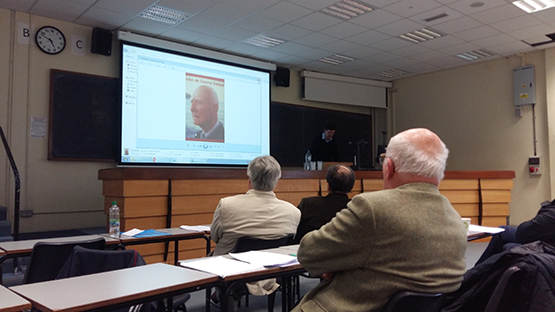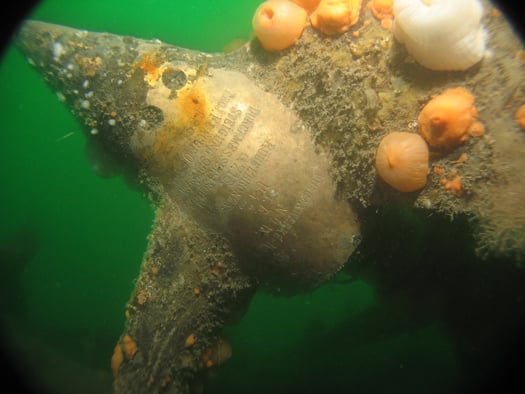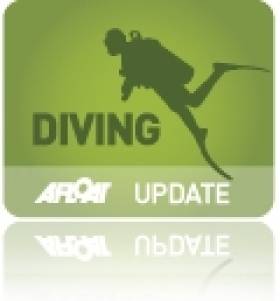Displaying items by tag: U boat
German U boats 'Myths' Heard at Irish Maritime History Conference
Stories that abound in the West of Ireland concerning German U- boats refuelling and resupplying, or having pints in local pubs during World War Two appear to be "fanciful myths" the second annual Irish Maritime History Conference has been told writes Tom Mac Sweeney. The conference is being held this weekend at UCC. Delivering a paper on German espionage initiated by sea, Sam Moore from Sligo IT said there, in reality, been only three successful U-boat landings of German agents, two in Kerry and one in Sligo and only one agent had been even partially successful in his mission.
The conference heard from Jean Prendergast, wo has been researching Cork and the Great War that 70 Cork sailors were decorated for bravery during WW1.

Also at the conference today, tributes have been paid to Dun Laoghaire's long-time maritime figure and campaigner Dr.John de Courcy Ireland at the national maritime history conference in Cork.
Dr. John Mulqueen from Trinity College said he had spent a lifetime highlighting the potential of the sea as a natural resource.
German U-Boat Rediscovered in Cork Harbour
Scuba Divers have found a fully intact World War I U-Boat on the seabed just outside Cork harbour, some 93 years after it sank writes Timmy Carey.
During the First World War the menace provided by German U-Boats would prove deadly to the Allies and were responsible for sinking millions of tons of shipping; indeed German U-Boats almost changed the course of the war. Most allied ships sunk by U-boats were sunk by either torpedo, deck gunfire or explosives placed aboard the ship by U-boat crew. A smaller number of ships were also sunk by mine laying U-boats; one of these being UC42. On the 10th of September of 1917 UC42 was laying her deadly cargo of mines at the entrance to Cork harbour when a terrific explosion occurred which resulted in a grim death for all 27 German Submariners aboard.
As the submarine sank to the seabed the German submariners were trapped inside UC42, which would soon become their metal tomb.
On November 2nd of that year, hardhat divers from the Haulbowline dockyard dived the area and positively identified the U-boat as UC42, noting the stern damage to the submarine and the presence of the bodies of some of the German submariners. During 1918 the submarine was dived by Haulbowline and American divers in an effort to disarm all the mines and torpedoes still aboard, with USS Melville taking three of the mines. It was widely believed that in July 1919 divers using explosives from HMS Vernon torpedo school had destroyed the submarine with the remains being dispersed on the seabed by wire sweeps.
With the advent of scuba diving many divers have since searched for the scattered remains of UC42 around Cork harbour with no luck until a recent dive by two local divers Ian Kelleher and Niall O Regan descended a shot line to see the menacing sight of the hull of a German U-boat emerge from the shadows. Both divers were very surprised and ecstatic to find a fully intact World War I U-Boat in 27 meters of water just outside Cork harbour in good condition with little obvious explosive damage from the British naval dive team.
A local dive team of five divers had spent the previous 12 months carrying out a careful methodical search of the greater harbour area determined to find the remains of the submarine; their hard labours finally paying dividends when Niall and Ian identified the presence of the submarine. The dive team consisted of Ian Kelleher, Niall O Regan, Philip Johnston, Eoin Mc Garry and Timmy Carey.
Over the past few weeks the divers have carefully and methodically videoed and photographed the Submarine and taken various measurements to record the wrecks' condition. Over a number of dives the dive team carefully cleaned the growth from the propeller and after some methodical cleaning found the U-Boats number UC42 stamped into it; positively identifying the submarine.
As the submarine is a war grave and contains the remains of so many young German submariners the dive team also laid a plaque of remembrance, which was erected near the submarines propellers; to act as a memorial to the German submariners forever entombed in UC42. The plaque was kindly donated to the dive team by John O' Mahony of Complete Signs.

The image of the U-Boats propellor with the markings identifying the U-Boat. Photo: Timmy Carey

A badly decayed mine on UC42 still in the mine chute. Photo: Timmy Carey





























































